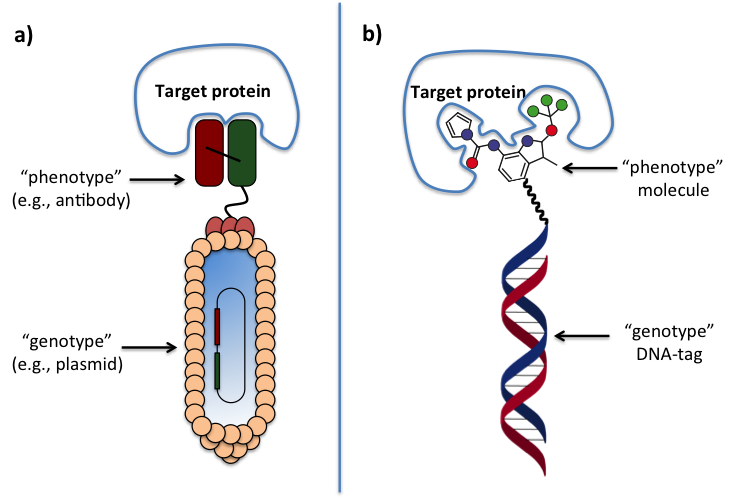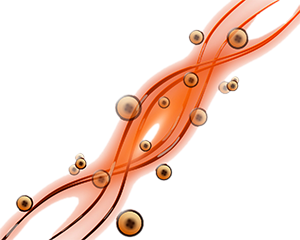DNA-encoded chemical libraries are a break-through technology for the fast and efficient discovery of new drugs and biologically active compounds, against virtually any given target protein of choice.
Through a conceptual translation of antibody phage display technology, which depends on the link between the antibody binding properties (‘phenotype’) and the genetic information coding for the antibody (‘genotype’)(Figure 1a), DNA-encoded chemical libraries consist of collections of organic molecules, covalently linked to a unique DNA tag serving as an amplifiable identification bar code (Figure 1b).

Figure 1: Antibody phage display and DNA-encoded chemical libraries. a) Antibody fragment (depicted in red and green) displayed in scFv format as fusion protein to the pIII protein on the tip of the phage particle. The phage particle provides a physical linkage between the protein binding properties (“phenotype”) and the genetic information coding for the antibody (“genotype”). b) DNA-encoded chemical libraries as conceptual translation of antibody phage display technology. Small organic molecules are covalently linked to unique DNA-oligonucleotides. The DNA tag (“genotype”) serves as amplifiable identification bar code for the displayed small organic molecule (“phenotype”).
DNA-encoding enables the rapid and inexpensive in vitro selection of ligands by affinity capture at sub-picomolar concentrations on any target protein of interest. Since no screening assays are required, DNA-encoded chemical libraries are ideal for tackling historically challenging target proteins, such as components involved in protein-protein interactions (PPI).

